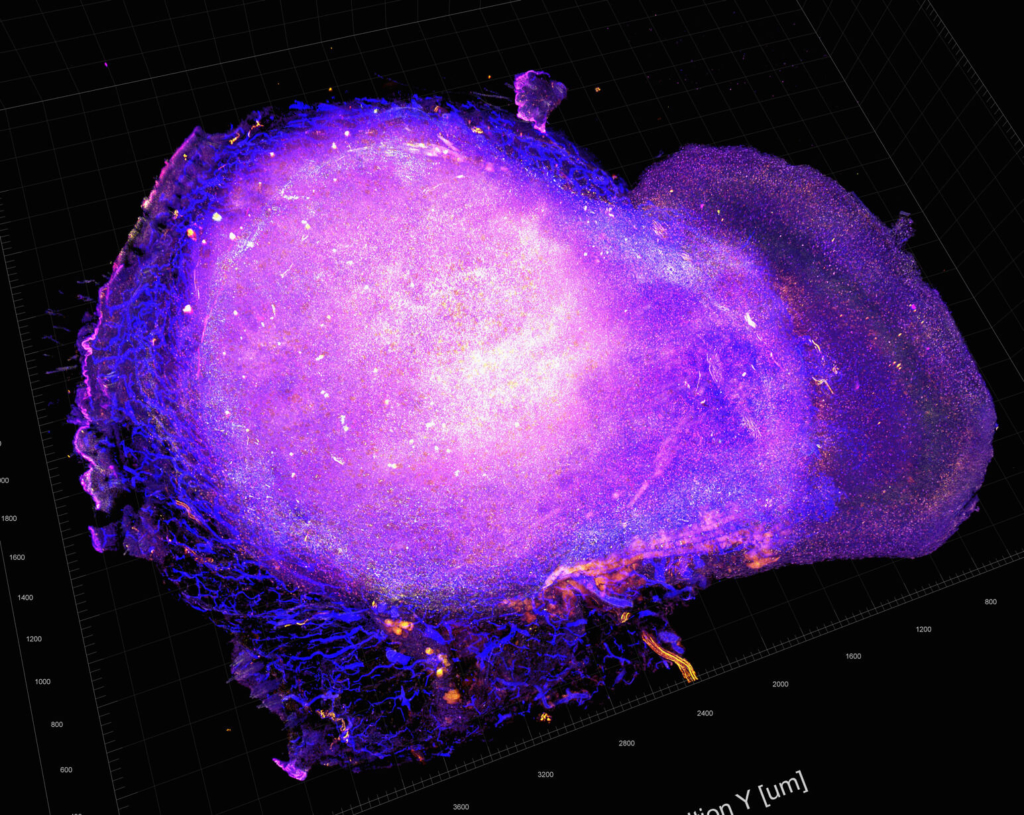Tumor Microenvironment
The area surrounding and feeding tumor cell is known as the tumor microenvironment. Included in the microenvironment are a variety of cells, molecules and the stroma, which is the connective tissue and blood vessels surrounding the tumor. In pancreatic cancer, the stroma is extremely dense, making it very difficult for medication to penetrate the tumor.
Lustgarten Foundation Chief Scientist Dr. Tuveson compares pancreatic cancer to an oatmeal-raisin cookie, where the raisins are the cancer cells. Not only is the stromal tissue surrounding the cancer cells—or the oatmeal—denser than in other cancer types, some of its non-cancerous components promote tumor survival and growth.
Dr. Tuveson’s team recently discovered pancreatic cancer has at least two varieties of fibroblasts, a type of cell in the stroma. Understanding that the fibroblasts are not the same provides an opportunity to develop therapeutic agents to target the specific fibroblasts.

Vitamin D Potential
In addition to potentially impacting the pancreatic cancer tumor’s biology, vitamin D also has the potential to change the microenvironment. The SU2C-Cancer Research UK-Lustgarten Foundation Pancreatic Cancer Dream Team found that the vitamin D receptor plays an important role in determining pancreatic cancer susceptibility to chemotherapeutic agents. This team is studying vitamin D receptors to determine if they are effective “super-enhancers” which improve patient response to chemotherapy.
Studying the Immune System of Long-Term Survivors
By looking at individuals who have survived pancreatic cancer for long periods of time, the SU2C-Lustgarten Foundation-Society for Immunotherapy and Cancer Pancreatic Cancer Convergence Research Team has identified an initial set of high-quality neoantigens, or protein tags, on cancer cells recognized by the immune system. They are now working to further understand neoantigens, with the goal of developing a method for creating vaccines to treat pancreatic cancers. This research will have a significant impact on understanding neoantigen T cell immunobiology, and could improve the treatment prospects of pancreatic cancer patients.

